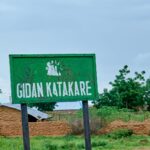
It’s another season of violent impositions, blood taxes, and rural terrorism for locals on the shore of Zamfara, North West Nigeria. Different terror groups have run amok, invoking violence and bloodshed in many civilian communities of the state. The terrorists have asked the affected towns and villages to buy their safety by paying multimillion naira protection levies.
At least 43 agrarian communities are caught up in the cash-for-safety scheme in Tsafe and the Bukuyum Local Government Area of the state. The unlawful demands for protection levies are from different terrorist leaders thriving in Gando, Baruba, Nannarki, and Lokoja forest camps in Bukuyum. Farmers in the Anka area, especially those operating around forest camps in Kawaye, Sumke and Burtalin Ardo, must pay levies to terrorists for a seamless farming season.
In Tsafe, one of the hard-hit areas in Zamfara, a Dan-Isuhu-led terror group operating in the Fadamar Mangoro forest camp imposed a total levy of ₦172 million across 25 villages to protect locals from attacks by his boys.
The affected villages are Gijinzama, Dakolo, Kauyen Kane, Kurar Mota, Sabon Garin, Baking Gulbi, Kibari, Karda, Daga Ciki, Biya, Barebari, Kauyen Magaji, Kwaren Maisaje, and Magazawa. Other villages taxed in Tsafe include Maciya, Unguwar Danhalima, Unguwar, Rogo, Katanga, Magazu, Sungawa, Rakyabu, Yalwa, Tsageru, Gidan Anne and Kunchin Kalgo.
₦58 million for peace to reign
When terrorists loyal to Dogo Gide, a notorious terrorist leader, attacked the Keta community of the state in August 2024, villagers gathered ₦8 million to bribe the attackers “for peace to reign”. The terrorists came back three months later to ask for another protection levy in multiple folds.
“The levy is paid to buy our peace so that we can access our farms and go for our local businesses,” Amiru, a local from the Keta village, said.
Dogo Gide has thrived in the northwestern region as a terrorist leader for over a decade, terrorising hundreds of communities and masterminding ghastly attacks against villagers, local and cross-border travellers, farmers and business people across states.
Locals told HumAngle that communities usually receive Dogo Gide’s messages for protection levies through his agents, who contact the village heads. Upon receiving the message, the village heads would gather and address locals, after which negotiation takes effect.
Ummaru Naketare, the village head of the Dokolo community, complained that they had no option but to contribute and pay for the demands in exchange for peace.
“We tasked every household and village head to contribute the funds ₦2,000, ₦5,000 or ₦10,000, depending on their financial status because we are afraid of rampaging attacks that government security forces cannot contain and control,” a resident told HumAngle, asking not to be described by name.
“Sometimes, we sell our belongings and assets such as motorcycles and leftovers of our farm produce and give out profits from assets of our businesses to pay the levies,” the source added.
The terrorist leader has also assured the villagers that once they pay the protection levies, they will be protected from rival terror groups who might want to attack them. In Magazawa, a nearby village, residents have also complied with Dogo Gide’s order, paying ₦10 million as a levy for protection.
Zamfara, in North West Nigeria, faces rampant violence from terror groups demanding protection levies from communities.
At least 43 agrarian communities in Tsafe and Bukuyum are coerced into paying these levies to ensure safety, with the Dan-Isuhu and Dogo Gide groups enforcing these cash-for-safety schemes.
Affected villages, such as those in Tsafe, are taxed significant sums, like the ₦172 million imposed on 25 villages, while others, like Keta, have to repeatedly pay to avoid attacks.
Dogo Gide, a notorious leader operating for over a decade, uses agents to demand levies, leading villagers like those in Dokolo to reluctantly contribute funds. Locals often sell belongings to meet the demands, ensuring protection from rival groups. Magazawa village recently complied with a ₦10 million payment, exemplifying the harsh reality faced by these communities with insufficient government intervention.
